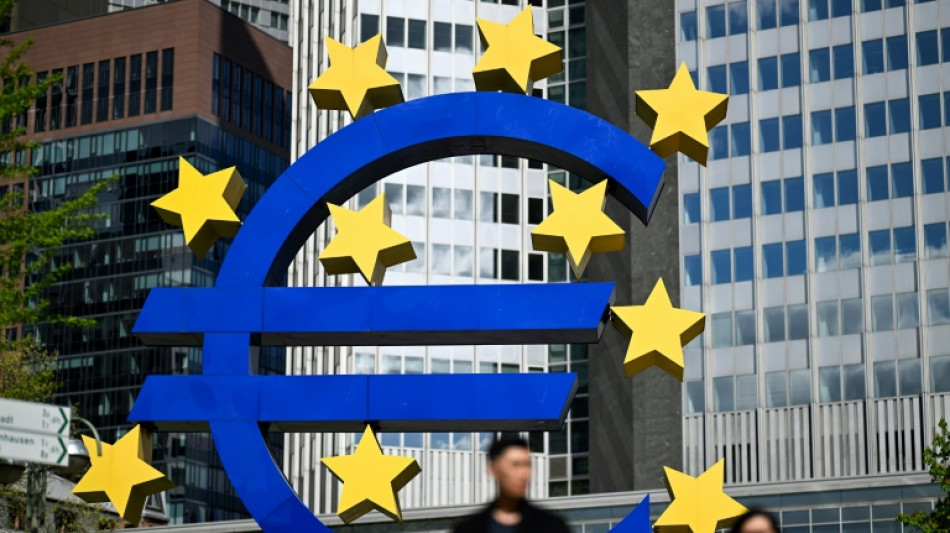
-
 Slalom showdown Shiffrin's last chance for Milan-Cortina medal
Slalom showdown Shiffrin's last chance for Milan-Cortina medal
-
Protesters march in Kosovo, as ex-president's war crimes trial nears end
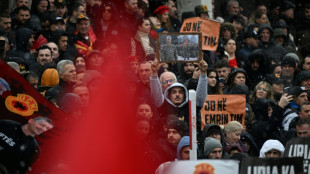
-
 No pressure on India opener Abhishek after two ducks, says coach
No pressure on India opener Abhishek after two ducks, says coach
-
Sakamoto eyes figure skating gold in Olympic farewell

-
 Pereira 'trusts' Forest owner Marinakis despite three sackings this season
Pereira 'trusts' Forest owner Marinakis despite three sackings this season
-
AI 'arms race' risks human extinction, warns top computing expert

-
 Israeli bobsleigher dismisses Olympics 'diatribe' by Swiss TV commentator
Israeli bobsleigher dismisses Olympics 'diatribe' by Swiss TV commentator
-
Supreme leader says Iran can sink US warship as Geneva talks conclude

-
 Australia, Ireland out of T20 World Cup as Zimbabwe qualify after washout
Australia, Ireland out of T20 World Cup as Zimbabwe qualify after washout
-
Greece experts to examine Nazi atrocity photos find

-
 Los Angeles mayor calls for 2028 Olympics chairman to step down over Epstein files
Los Angeles mayor calls for 2028 Olympics chairman to step down over Epstein files
-
Evenepoel takes UAE Tour lead with time-trial win

-
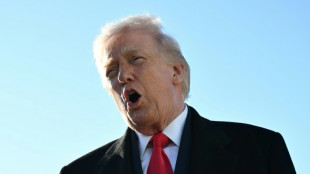 Oil prices rise as Trump ramps up Iran threats
Oil prices rise as Trump ramps up Iran threats
-
EU investigates Shein over sale of childlike sex dolls

-
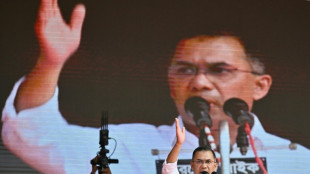 Bangladesh's new PM, political heir Tarique Rahman
Bangladesh's new PM, political heir Tarique Rahman
-
Rain threatens to knock Australia out of T20 World Cup

-
 US civil rights leader Jesse Jackson dies at 84: family
US civil rights leader Jesse Jackson dies at 84: family
-
Trump's new envoy arrives in South Africa with relations frayed
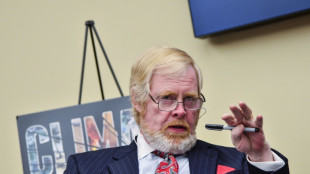
-
 Jesse Jackson: civil rights lion sought 'common ground'
Jesse Jackson: civil rights lion sought 'common ground'
-
Iran, United States hold new talks in Geneva

-
 Tariq confident Pakistan can bounce back after India drubbing
Tariq confident Pakistan can bounce back after India drubbing
-
Being back in the USA 'feels amazing', says Vonn

-
 New Zealand cruise into Super Eights at T20 World Cup
New Zealand cruise into Super Eights at T20 World Cup
-
Moscow, Kyiv meet for US-brokered talks after fresh attacks

-
 Exhilarating Italy aim to sign off with giant-killing at T20 World Cup
Exhilarating Italy aim to sign off with giant-killing at T20 World Cup
-
Samra hits 110 for Canada against New Zealand at T20 World Cup

-
 'Made in Europe' or 'Made with Europe'? Buy European push splits bloc
'Made in Europe' or 'Made with Europe'? Buy European push splits bloc
-
Slovakia revamps bunkers with Ukraine war uncomfortably close

-
 Sydney man jailed for mailing reptiles in popcorn bags
Sydney man jailed for mailing reptiles in popcorn bags
-
'Like a Virgin' songwriter Billy Steinberg dies at 75

-
 Who fills Sexton vacuum? Irish fly-half debate no closer to resolution
Who fills Sexton vacuum? Irish fly-half debate no closer to resolution
-
Japan hails 'new chapter' with first Olympic pairs skating gold

-
 Russian prosthetics workshops fill up with wounded soldiers
Russian prosthetics workshops fill up with wounded soldiers
-
'Not just props that eat': Extras seek recognition at their own 'Oscars'

-
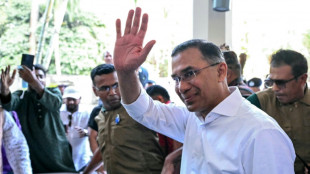 Bangladesh PM-to-be Tarique Rahman and lawmakers sworn into parliament
Bangladesh PM-to-be Tarique Rahman and lawmakers sworn into parliament
-
At least 14 killed in spate of attacks in northwest Pakistan

-
 Peru Congress to debate impeachment of interim president
Peru Congress to debate impeachment of interim president
-
Bleak future for West Bank pupils as budget cuts bite

-
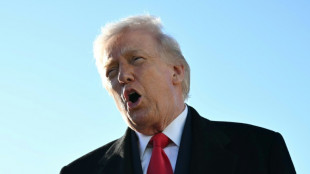 Oil in spotlight as Trump's Iran warning rattles sleepy markets
Oil in spotlight as Trump's Iran warning rattles sleepy markets
-
Why are more under-50s getting colorectal cancer? 'We don't know'

-
 Moscow, Kyiv set for Geneva peace talks amid Russian attacks
Moscow, Kyiv set for Geneva peace talks amid Russian attacks
-
Iran, United States set for new talks in Geneva

-
 China has slashed air pollution, but the 'war' isn't over
China has slashed air pollution, but the 'war' isn't over
-
India's tougher AI social media rules spark censorship fears

-
 Doctors, tourism, tobacco: Cuba buckling under US pressure
Doctors, tourism, tobacco: Cuba buckling under US pressure
-
Indonesia capital faces 'filthy' trash crisis

-
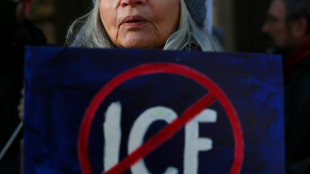 France grants safe haven to anti-Kremlin couple detained by ICE
France grants safe haven to anti-Kremlin couple detained by ICE
-
ACCESS NEWSWIRE Launches Partner Marketplace to Expand its Communications Platform for PR and IR Professionals

-
 Dolphin Partners With Vaneast Pictures To Bring Sports Drama Youngblood to Berlin for International Sales
Dolphin Partners With Vaneast Pictures To Bring Sports Drama Youngblood to Berlin for International Sales
-
Athena Bitcoin Launches New App to Enhance User Experience


ECB's digital euro sparks flurry of online misinformation
European Central Bank president Christine Lagarde's recent remarks on a "digital euro" prompted a fresh wave of misinformation online, highlighting an uphill battle ahead to convince the public of the project's merits.
The decision to create a digital euro -- essentially an electronic form of cash backed by the ECB -- has not been made yet and any possible launch would be years away.
But when Lagarde in a press conference this month referenced an October 2025 deadline for moving to the next stage of preparations, social media lit up with alarmed messages that the launch was imminent.
Harald Vilimsky, a member of the European Parliament from Austria's far-right Freedom Party (FPOe), was among those posting that the ECB "wants to introduce the digital euro in October", an incorrect claim that spread in several languages.
The claim was echoed on X by Nicolas Dupont-Aignan, the eurosceptic head of the Rise Up France party, who added that the project was "madness for our freedoms".
Other widely shared posts repeated misconceptions that have long dogged the project: that a digital euro would mean the "end of cash" or be used for financial surveillance, allowing the ECB to "block" or "track" payments or "access savings".
"Your money will no longer be yours," alleged a French TikTok video shared more than 15,000 times.
The falsehoods circulating online reveal a broader "mistrust of centralised institutions", said Vicky Van Eyck, executive director of campaign group Positive Money Europe.
Recent comments by French President Emmanuel Macron and European Commission chief Ursula von der Leyen about investment needs were similarly misused in viral posts that falsely claimed people's savings would be taken from them.
- 'Strategic autonomy' -
The ECB and dozens of other central banks worldwide are exploring or putting in place central bank digital currencies (CBDCs) as cash use declines.
Conspiracy theories about governments planning cashless societies as way of controlling citizens have proliferated since the Covid-19 pandemic, but ECB officials have been at pains to stress that a digital euro would complement cash -- not replace it.
Issued by the ECB, the money would be risk-free. It would be held in a digital wallet and payments could be made online or offline, allowing for cash-like anonymity. The ECB says it would not be able to directly link transactions to specific individuals.
In making the case for a digital euro, the ECB argues that it would bolster Europe's "strategic autonomy".
A digital euro would allow for direct money transfers between users, offering a pan-European payment service that could reduce reliance on US payment giants such as Mastercard, Visa, Apple Pay or PayPal.
"This dependence exposes Europe to risks of economic pressure and coercion," ECB chief economist Philip Lane warned last week, in a nod to transatlantic tensions under US President Donald Trump.
Lane said a digital euro could also counter the influence of increasingly popular dollar-backed "stablecoins" -- private digital currencies that are pegged to the US dollar and could undermine the euro if widely adopted in Europe.
- Challenges -
Some observers remain critical.
Ignazio Angeloni, a former ECB official and currently a fellow at Milan's Bocconi University, said Europeans already had "a plethora" of easy payment options and weren't necessarily looking for another.
For now, the digital euro discussions were still at a fairly technical stage, Angeloni said, and many members of the public were "not interested".
Van Eyck said interest could be hindered by plans to cap how many digital euros consumers could hold.
An ECB report published in March found that between 2022 and 2024, awareness about the digital euro jumped from 18 to 40 percent among eurozone survey respondents. The potential willingness to use it remained below 50 percent.
The decision to issue a digital euro will only come once European Union legislation is in place, but progress in Brussels has been slow.
If adopted, a digital euro would be introduced from mid-2027 or 2028 at the earliest, officials told AFP.
Good communication with the public will be key to its success, said Van Eyck.
"The big issue with not having the public on board is that the digital euro could flop," she said.
Y.Aukaiv--AMWN

